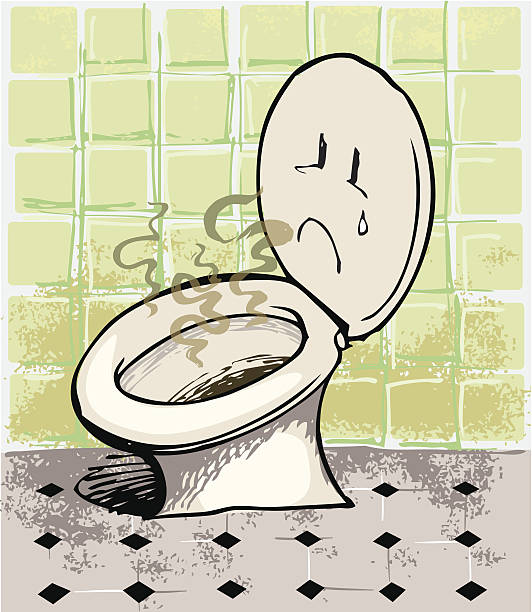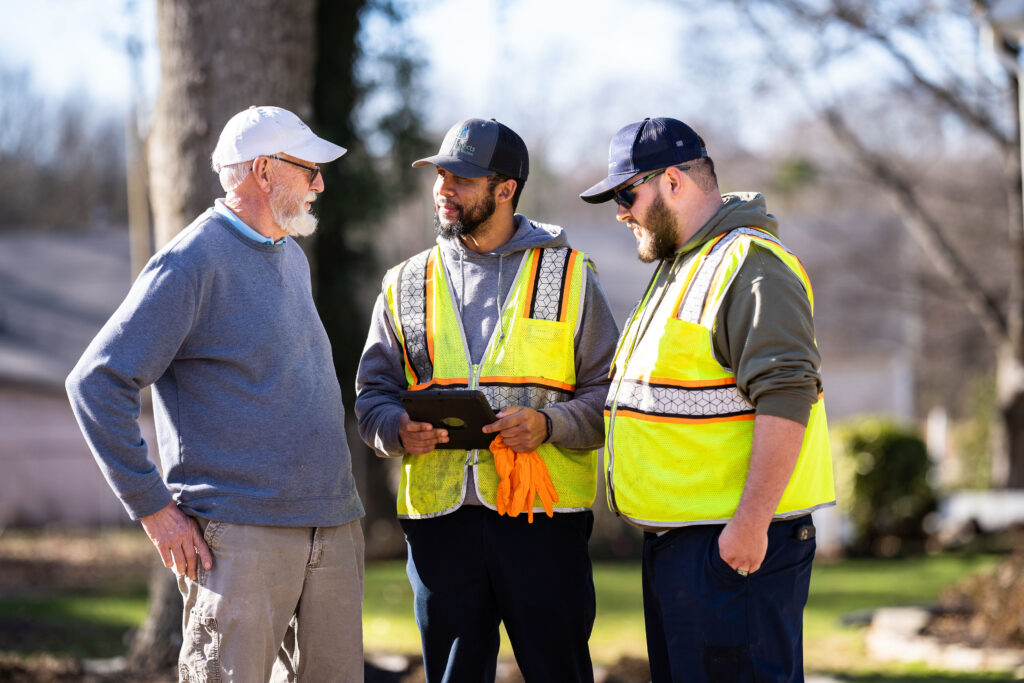The Making of a Mess
Have you noticed gurgles or groans coming from your pipes? Slow draining sinks or toilets that seem reluctant to flush? These telltale signs of a sewer backup can strike fear into the hearts of home and business owners. Is this the beginning of a major mess?
If you have noticed signs of a sanitary sewer backup in your home, it is important to act quickly before it turns into something much worse. Slow draining grey or black water (that is, all the used water that exits your home from a drain or toilet) can build up in your pipes and eventually look for a new place to escape — such as out of your toilet, sink or shower drain, spilling the smelly stuff throughout your home.
If you are a MetroConnects customer, call us before you call a plumber. We will check your pipes and see if there is anything we can do on our side of the lateral to clear it up. If the problem is on your side, we will let you know, and then it will be time for you to call a plumber.
Stopping it Before it Starts
Before it gets this far, there is plenty you can do to avoid a backup in the first place. Here are some key tips to keeping your plumbing flowing:
- Remember the three P’s: Only flush poop, pee and (toilet) paper. Never flush paper towels, wipes (even those labeled “flushable” — they are slow to breakdown and therefore cause backups), sanitary products such as tampons and pads, band aids or any other first aid items. Just the P’s please!
- Limit the paper: Excess toilet paper can end up causing clogs, especially if it is the thick type. Limit the amount you use and be sure to teach your kiddos to do the same.
- No FOG=No Clog: FOG, or fat, oil and grease, can do a number on your pipes. Fats come from dairy products, meats and some vegetable sources like coconut or avocado. Oils are most often coming from cooking oil like vegetable oil or olive oil, but can also show up in many oil-based bath products. Grease most often comes from meats and lard. When these products go down the drain, even if they are in liquid form, like milk, they can coagulate, building up to an unpassable fat-berg. Restaurants have to be especially careful to scrape dishes and collect cooking oils and greases in a container, which they then throw away, rather than rinsing them down the drain. Home cooks, too, need to watch out — fat, oil and grease can build up quickly.
- Drain stoppers are your friend: Use drain stoppers in your kitchen sink and your shower or bath. In the sink, they can catch food scraps that are tough on your pipes, such as fibrous vegetable peels, which you can then dispose of in the trash. In the shower, they can catch hair, soap scum and other debris that would otherwise build up in your pipes. Use a tissue or paper towel to wipe off the soap scum or shower oils that collect and throw it away — don’t make the mistake of throwing the tissue in the toilet and causing backups there instead!
- Practice sewer safe landscaping: Landscaping might keep the outdoors looking good, but if you aren’t careful, large-rooted bushes and trees can turn your the indoors into a din of dung. Roots are a common culprit in sewer backups. Seeking the nutrient-rich sludge flowing through the pipes, roots will make there way through any weaknesses in your laterals. Not only does this worsen cracks and leaks, but it also fills the pipes with debris. When you are planning your landscaping, call 811 to have your pipes identified. Then, keep all trees and large root bushes at least 10 feet away. If think your landscaping might be interfering with your pipes, call MetroConnects to come check it out.
Call Us First!
MetroConnects is here to help! When you notice signs of a potential back up, call us at (864) 277-4442 or visit www.metroconnects.org for more information.

